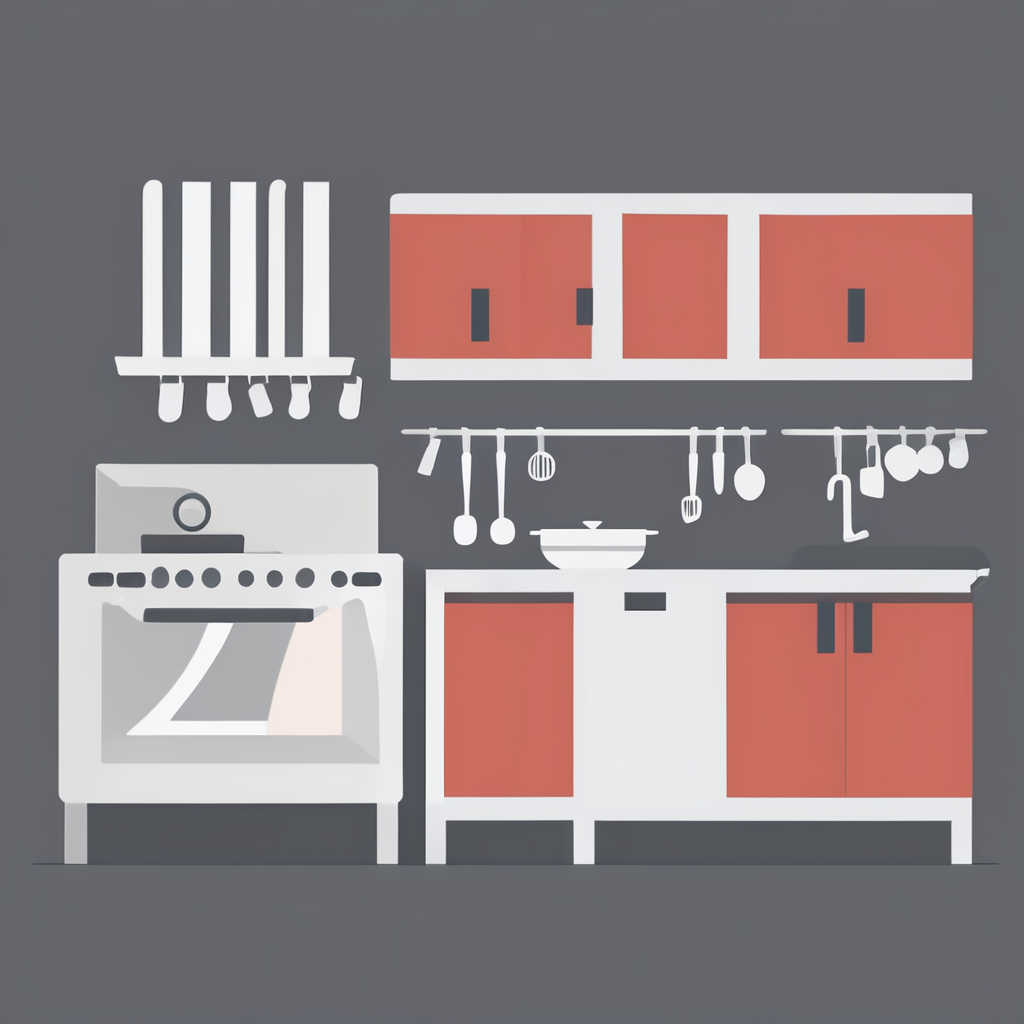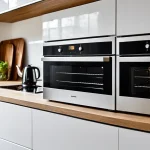The impact of UK kitchen products on sustainable cooking practices
Understanding eco-friendly approaches in modern kitchens
UK kitchen products have increasingly embraced sustainability in cooking, reflecting a broader shift towards environmental responsibility. Many manufacturers prioritize eco-friendly kitchenware, offering items made from renewable or recycled materials. This evolution supports sustainable practices by minimizing waste and promoting long-term use.
This might interest you : Discover the secret to enhanced baking skills with uk kitchen utensils
Locally produced UK kitchen products further reduce the carbon footprint by cutting down transportation emissions. When consumers choose goods crafted within the UK, they contribute to lower energy consumption associated with shipping and logistics. This localized approach effectively supports sustainable cooking by linking production to consumption within shorter supply chains.
Current trends in the UK kitchen sector highlight materials such as bamboo, reclaimed wood, and biodegradable composites. These choices not only enhance durability but also reduce environmental impact. Additionally, innovations like energy-efficient appliances and reusable cookware embody a commitment to sustainability in cooking that resonates with eco-conscious consumers.
Topic to read : Streamline your space: discover how uk kitchen essentials support a minimalist lifestyle
Overall, the UK’s focus on eco-friendly kitchenware fosters sustainable practices, encouraging households to rethink their cooking habits while supporting environmental well-being. This makes UK kitchen products a vital element in advancing greener culinary lifestyles.
Key features of sustainable UK kitchen products
Understanding what makes kitchenware green and practical
Eco-friendly appliances in the UK kitchen scene prioritize energy and resource efficiency. Models certified with high energy ratings reduce electricity consumption, lowering both carbon footprint and household bills. These appliances often incorporate smart technology to optimize cycles and minimize waste, aligning with sustainable living goals.
When it comes to utensils and cookware, recyclable utensils and energy-efficient cookware stand out by utilizing materials that are either renewable or easily recyclable. Stainless steel and bamboo are common choices, boasting durability without compromising environmental responsibility. Such materials not only ensure longevity but also simplify end-of-life recycling processes.
Several UK sustainable brands excel by combining innovation with eco-conscious design. These brands develop products that minimize environmental impact through thoughtful material sourcing and manufacturing techniques. Their commitment often includes transparent supply chains and efforts to reduce plastic use in packaging.
In sum, sustainable UK kitchen products integrate advanced technology and responsible materials to deliver functionality with minimal environmental cost. Consumers benefit from appliances and cookware that save energy and support circular economy principles, making eco-friendly choices more accessible and reliable.
Certifications and standards for sustainability in the UK kitchen market
Small text
In the UK kitchen industry, sustainability certifications and eco labels serve as crucial guides for consumers aiming to choose environmentally responsible products. Prominent certifications such as the FSC (Forest Stewardship Council) and PEFC (Programme for the Endorsement of Forest Certification) verify that wood materials come from sustainably managed forests. These certifications are widely recognized across Europe and help maintain clear UK kitchen industry standards regarding responsible sourcing.
Additionally, the EU Ecolabel plays a significant role in endorsing kitchen goods that meet strict environmental criteria, covering factors like resource efficiency, chemical use, and recyclability. This environmental product marking assures buyers that products are independently verified, reducing risks of misleading green claims.
To identify genuinely sustainable kitchen products, consumers should look explicitly for these trusted logos on packaging or product descriptions. Third-party verification provided by these certifications is essential since it offers objective assurance beyond manufacturer claims. Recognizing these eco labels enables buyers to support kitchen products that truly adhere to sustainability principles in line with current UK and EU requirements.
Measurable benefits of sustainable UK kitchen products
Sustainable UK kitchen products offer significant reductions in environmental impact, making them an essential choice for eco-conscious households. These products are designed to minimize resource use during both manufacturing and daily use, which directly contributes to lower energy consumption. For example, energy-efficient kitchen appliances reduce electricity use while maintaining performance, translating to noticeable energy savings over time.
Another crucial benefit is waste reduction. Sustainable kitchen tools and storage options help extend food freshness, thereby lowering the amount of food waste generated in UK homes. This not only saves money but also decreases the greenhouse gases associated with food decomposition in landfills.
When selecting sustainable kitchen products, considering a life cycle analysis is vital. This approach evaluates the total environmental footprint—from raw material extraction to production, use, and disposal. Products with lower life cycle emissions ensure that reduced environmental impact is achieved throughout their entire lifespan.
Together, these factors create a measurable positive effect on both the environment and household efficiency. By choosing sustainable kitchen products, UK consumers can actively participate in reducing energy use and waste, while benefiting from long-term cost and environmental savings.
Practical tips for choosing and using sustainable kitchen products in the UK
Small steps lead to big impact
When deciding on sustainable kitchen products in the UK, start by evaluating the materials used—opt for natural fibers or recycled materials over single-use plastics. Look out for certifications that indicate ethical manufacturing and eco-friendly standards. This approach not only supports ethical purchasing but also ensures better quality.
To maximise the product longevity, prioritise kitchenware that can withstand daily use without degrading quickly. Proper care and maintenance, like hand-washing delicate items instead of dishwashing, can extend the lifespan significantly. For example, seasoned cast iron skillets develop a protective coating that improves over time, combining durability with sustainability.
Adopting sustainable cooking habits complements your eco-friendly kitchenware choices. Cooking with energy-efficient appliances or batch-preparing meals reduces waste and energy consumption. Using tools suited for these habits—such as reusable silicone lids or sustainably sourced wooden utensils—creates a harmonious, low-impact kitchen routine.
Balancing functionality with sustainability is key; it enhances your kitchen’s efficiency and reduces environmental footprint. These consumer tips empower you to make mindful choices that last, emphasising quality over quantity and encouraging long-term value in your sustainable kitchen products.
Current trends and future directions in UK sustainable kitchen products
The market trends for sustainable kitchen products in the UK show a significant shift towards eco-friendly choices fueled by increasing environmental awareness. UK consumer behaviour now favours products that combine practicality with a reduced ecological footprint. This demand has accelerated the product innovation landscape, encouraging manufacturers to develop items using recycled materials, energy-efficient technologies, and biodegradable packaging.
Recent innovations include smart appliances that minimise energy consumption and kitchenware designed for longevity and recyclability. These advancements not only meet sustainability goals but also align with consumers’ desires for durability and style.
Looking ahead, the future of sustainable kitchens in the UK is expected to emphasise integration of cutting-edge technology such as IoT-enabled appliances that optimise resource use automatically. Additionally, circular economy principles will become more prominent, with increased focus on refurbishing and repurposing kitchen products to extend their lifecycle.
This trajectory suggests an exciting evolution where sustainability and innovation go hand in hand, offering UK consumers more choices that are both environmentally and functionally superior. Keeping abreast of these trends can empower homeowners to make informed, impactful decisions when upgrading their kitchens.


